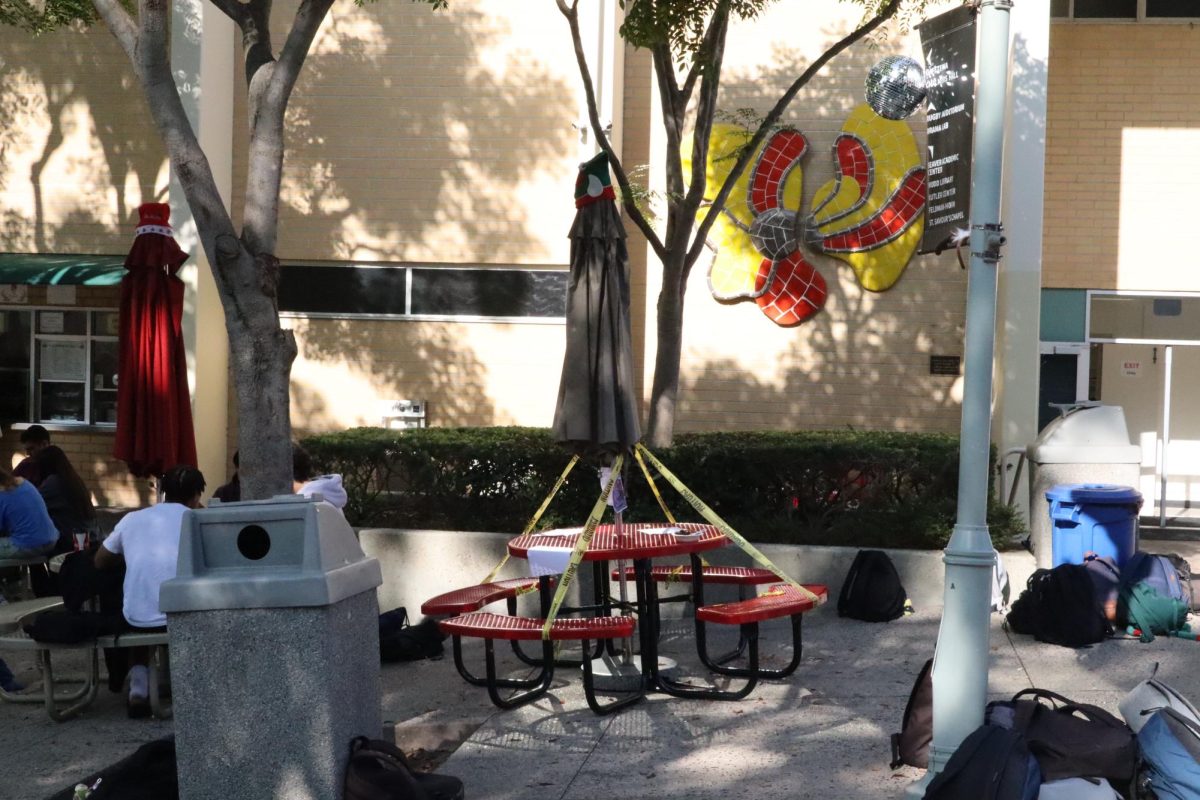Michael Lehrhoff ’20 emerged from the AMC 7 after watching the high school coming-of-age film, “Love, Simon” with an empty popcorn bag and a mind full of ideas ready to be shared. However, when he turned around to discuss the movie with his friends, he found that they had already begun laughing and complaining about the inaccuracies in the portrayal of a high school experience.
“In my opinion, high school movies do a good job of exploring the various aspects of the teenage mind,” Lehrhoff said. “However, I do think these films often portray worlds that don’t include how boring everyday life can often be.” “Love, Simon” is one of multiple high school films to come out this year, including “Alex Strangelove,” “To All the Boys I’ve Loved Before,” “The Kissing Booth” and “Sierra Burgess is a Loser.”
However, this genre of films is no new phenomenon. High school films have been a staple of the film industry for decades, from “Grease” in the 1970s and the John Hughes films in the 1980s to “Clueless” in the 1990s and the “High School Musical” franchise in the 2000s. Most movies about high school do not resemble the reality of the Harvard-Westlake experience, Madeleine Dupee ’20 said.
“It’s possible that it could be like that for some people in other schools,” Dupee said. “At least here, there are almost no similarities. I sometimes yell at the television screen because those films are not how high school is. I really don’t think it’s at all like the actual experience.”
However, Nicholas Weinstock (Savannah ’18), producer of high school movies ‘Alex Strangelove’ and ‘The Package,’ said filmmakers try to take teenagers’ perspectives into account.
“I think the key to making the films good, for me anyway, is to be painfully aware that I’m a guy in my late 40’s working on stories that belong to people who are literally 30 years younger than me,” Weinstock said.
In order to bridge this gap, filmmakers incorporate teenagers into the creative process, Weinstock said.
“The project needs to be driven and shaped by younger people who are closer to the source,” Weinstock said. “The teenage actors need to be able not only to improvise on set, which is crucial but to see a draft of the script early enough to have real input. We need to interview high school students before production, show rough cuts of the film to them early in the editing process and actually incorporate their critiques and ideas.”
Still, even if the films may not be accurate to people’s actual experiences, they are usually accurate to how people hope high school will turn out, Caroline Cook ’19 said.
“They’re accurate to everyone’s high school fantasy,” Cook said. “I just don’t think that they’re accurate to real life.”
It’s not simply students who aren’t always portrayed correctly, it’s also the relations between administrators and students, Upper School Dean Sharon Cuseo said.
“I just rewatched [‘Ferris Bueller’s Day Off,’] and I didn’t relate to the administration in that particular scenario,” Cuseo said. “I just feel like there isn’t that much of an antagonistic relationship.”
However, most students watch teen movies for entertainment’s sake, not for an accurate depiction of high school, Cook said. “It’s just a fun escape to look at and fantasize about,” Cook said. “I just feel like I’m working harder than all the fictional characters.”
For Dahlia Low ’20, it’s this mix of fantasy and real life that makes these movies so addicting, she said.
“I think that obviously, the point of a movie is to show something that might be relatable but that you can’t imagine yourself,” Low said. “If you were watching your own life on the screen, it wouldn’t be that interesting. The movies aren’t that accurate, but they have certain general concepts that can be relatable.”
Low said it’s the smaller details that allow her to tie her life into the films she sees.
“We have a retreat like they do in ‘All the Boys I’ve Loved Before,’ and it was a big deal,” Low said. “I think the relationships between friends are more realistic [than the romantic relationships.]”
The films that were popular when Upper School Dean Adam Howard ‘93 was in school had a similar effect on him. He always saw them as fiction, but realistic fiction.
“I was fortunate enough to have movies in my life like ‘Fast Times at Ridgemont High,’ ‘The Breakfast Club’ and ‘Ferris Bueller’s Day Off’ before going to high school,” Howard said. “While part of me anticipated some Jeff Spicoli and John Hughes- style antics to come, I don’t think I ever fully bought into them beyond the fiction.”
However, Interdisciplinary Studies and Independent Research Teacher and Counselor Michelle Bracken said that such films had a significant influence on her expectations and behavior in high school.
“The movies all influenced the way I dressed and thought about boys and friends,” Bracken said. “I wanted the friendships these movies portrayed and hoped for the romances they had.”
The way that movies portray different lifestyles can influence students, often on a subconscious level, Bracken said.
“Movies can have a positive or negative impact on teenagers depending on how relevant the movie is to them,” Bracken said. “I do realize that teenagers are not dumb and can separate out fantasy from reality. However, the constant messages do have an influence on teen attitudes.”
Ultimately, despite the differences between the high school experiences shown on film and the Harvard-Westlake experience, everyone can relate to the process of growing up and entering adulthood, Howard said.
“I think, at their core, every high school experience has certain parallels, with the development from adolescence to adulthood,” Howard said. “At the same time, I think the academic drive that ties most of our students together makes us a little different.”
It’s the emotional core of the films that draw teens to keep seeing them, Weinstock said.
“I think I’ve always been drawn to make high school movies, not because they’re ‘marketable’ or ‘commercial’ or can strategically ‘get to kids’ but because high school is such a raw, brutal, emotional time that it tends to unearth characters and stories that are particularly rich and brave,” Weinstock said. “It’s the same reason a good war movie is so impactful: the epic pain of the experience can be turned into power.”



































